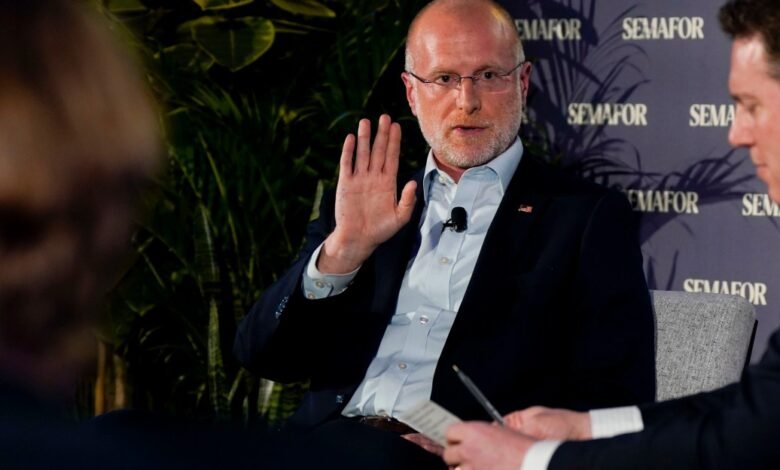Brendan Carr Claims First Amendment Win

▼ Summary
– The Freedom of the Press Foundation filed a complaint against FCC Chairman Brendan Carr, accusing him of violating attorney conduct rules by leveraging power to control media speech.
– The complaint highlights Carr’s approval of the Paramount-Skydance merger, which included unusual conditions like appointing an ombudsman to enforce “diverse viewpoints,” straying from FCC norms.
– Carr’s actions, alongside Trump’s influence, are framed as an “unconstitutional shakedown” targeting free speech, with CBS canceling Stephen Colbert’s show amid pressure.
– The merger’s conditions threaten media diversity, potentially skewing coverage against Trump critics and scrutinizing shows for racial or gender representation.
– The FCC’s growing influence over media mergers raises concerns about government overreach, with Carr prioritizing political agendas over public interest and free expression.
Federal Communications Commission Chairman Brendan Carr is facing scrutiny over allegations that his actions threaten free speech protections under the First Amendment. The Freedom of the Press Foundation recently filed a complaint accusing Carr of abusing his authority to influence media content, particularly in connection with the Paramount-Skydance merger. The controversy highlights growing concerns about government overreach in shaping broadcast narratives.
The complaint centers on Carr’s role in approving the merger under unusual conditions, including the appointment of an ombudsman to ensure “diverse viewpoints” in programming. Critics argue this move effectively pressures media companies to align with specific political agendas. The situation escalated when CBS, a Paramount subsidiary, canceled Stephen Colbert’s show, a decision Carr later suggested helped the network comply with FCC expectations.
Legal experts describe these actions as an “unconstitutional shakedown,” pointing to a pattern of leveraging regulatory power to suppress unfavorable coverage. While the immediate targets are large corporations like Paramount and Skydance, the broader impact threatens editorial independence across the media landscape. The FCC’s demands for “balanced” content could skew reporting, comedy, and even casting decisions to fit politically motivated criteria.
The issue gained attention after South Park satirized the Paramount-Trump legal battle in its season premiere, drawing parallels to real-world pressures on creative expression. Meanwhile, Carr has framed his interventions as necessary to restore public trust in media, a claim opponents dismiss as a pretext for censorship.
This controversy reflects a deeper ideological clash over media regulation. Conservatives have long accused Democratic administrations of bias in FCC policies, while Carr’s recent actions suggest a Republican-led effort to reshape content standards. The FCC’s expanding influence over mergers raises concerns about future demands, from restricting diversity initiatives to dictating editorial stances.
While the legal complaint against Carr faces long odds, it underscores a critical debate: whether regulators should dictate what audiences see, or trust viewers to decide for themselves. The outcome could redefine the boundaries between government oversight and free speech in an era of increasing media consolidation.
(Source: The Verge)
